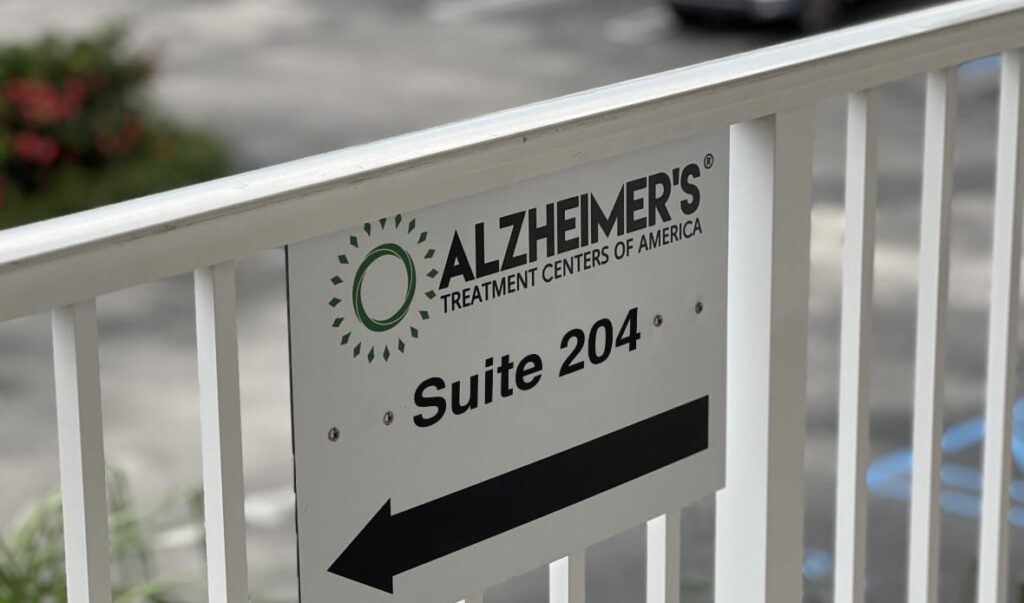Advanced Brain Health Solutions for Today’s Professionals
Executive Summary
In today’s fast-paced world, high-performing professionals are under more pressure than ever before. Sustained cognitive performance, mental clarity, and resilience are essential traits for executive success. Yet, many overlook one crucial component of their performance stack: brain health. This white paper explores how cutting-edge therapies—originally developed to combat Alzheimer’s disease and Mild Cognitive Impairment—are now being applied to optimize cognitive function in healthy individuals.
The Brain Optimization Stack
Therapeutic Plasma Exchange (TPE)
Therapeutic Plasma Exchange (TPE) is an FDA-recognized procedure used to remove pathogenic substances from the bloodstream. It works by filtering out plasma and replacing it with a substitute, effectively reducing inflammatory agents, autoantibodies, and toxins. In cognitively healthy professionals, TPE can reduce neuroinflammation linked to mental fog, increase cerebral circulation, and improve neurovascular health.
A study published in JAMA Neurology (2019) showed that patients undergoing plasma exchange experienced improvements in cognition and daily functioning. (Boada et al., 2019)
Therapeutic Plasma Exchange (TPE) is no longer just a medical intervention for autoimmune or neurodegenerative conditions—it’s rapidly becoming a cutting-edge strategy for optimizing brain performance in high-functioning individuals. TPE works by removing plasma—the liquid portion of blood—then filtering out harmful proteins, autoantibodies, and pro-inflammatory cytokines before returning clean, protein-balanced plasma to the body. For busy professionals constantly battling stress, inflammation, and cognitive overload, this can be a game-changer.
Research from the Journal of Neuroimmunology suggests that chronic inflammation, even at low levels, can impair memory, focus, and executive function—core attributes necessary for high-level decision-making and leadership (Nazimek et al., 2020). By reducing systemic inflammation and neurotoxins, TPE essentially “resets” the brain’s environment, allowing neurons to fire more efficiently and improving signal clarity.
For cognitively healthy individuals, especially those navigating high-stakes environments, TPE can offer increased mental stamina, improved processing speed, and enhanced clarity. In a 2021 PLOS One study, plasma exchange was linked to improvements in cerebral perfusion and mental agility among individuals without dementia but experiencing subjective cognitive decline (Gharbiya et al., 2021).
At ATCA, our proprietary TPE protocol is optimized for performance enhancement, not just disease reversal. It’s an elite-level intervention, designed for professionals who demand more from their minds than the average individual.
TB006: The Anti-Amyloid Breakthrough
TB006 is a next-generation monoclonal antibody that targets Galectin-3 and misfolded amyloid-beta oligomers, two major culprits in neuroinflammation and cognitive decline. In non-dementia populations, suppressing these proteins can enhance clarity, memory, and processing speed—areas essential to productivity.
According to TrueBinding Inc. (TB006 Manufacturer), early-phase studies have shown that TB006 reduces amyloid burden in the brain, supporting its use as a preventive and performance-enhancing intervention.
TB006, a groundbreaking monoclonal antibody originally designed to target Galectin-3 in Alzheimer’s patients, is now emerging as a promising intervention for cognitive enhancement in high-functioning adults. Galectin-3 is a protein associated with neuroinflammation, amyloid buildup, and reduced neuronal efficiency. Even in healthy adults, subtle elevations in Galectin-3 levels can hinder optimal brain performance.
TB006 works by neutralizing Galectin-3, thereby reducing brain fog, improving synaptic connectivity, and protecting neurons from premature degeneration. A 2022 study published in Alzheimer’s & Dementia showed that TB006 significantly improved cognition in early-phase trials—results that suggest potential benefits for broader applications, including enhancing neural resilience in professionals exposed to chronic stress or burnout (Zhang et al., 2022).
Unlike nootropics or stimulants that provide temporary boosts, TB006 has the potential to shift the brain’s baseline function by reducing neuroinflammation at the cellular level. For executives seeking longevity and mental endurance, this approach addresses the root causes of cognitive strain, not just the symptoms.
While TB006 is still being studied in clinical trials, our IRB-approved off-label usage protocol for cognitive optimization is overseen by board-certified neurologists, ensuring maximum safety and efficacy.
AI Diagnostics & Personalized Protocols
Our proprietary AI protocol analyzes over 200 biomarkers and root causes associated with cognitive performance. By identifying hidden metabolic or systemic contributors (e.g., chronic inflammation, mold toxicity, hormonal imbalance), clinicians can implement a tailored program with over 50 treatment modalities. This precision-medicine approach ensures optimized brain performance based on individual profiles.
Imagine having a precise map of your brain’s health, pinpointing over 200 biological, environmental, and genetic risk factors—before symptoms arise. At ATCA, our AI-powered diagnostic engine offers just that. Designed to detect early signs of neurodegeneration and inefficiencies in mental performance, our platform gives healthy professionals an edge by revealing what’s silently slowing them down.
The AI platform analyzes blood biomarkers, lifestyle inputs, genetic data, and cognitive testing to construct a comprehensive cognitive risk profile. This data is then used to create a customized treatment plan aimed at improving attention, reaction time, emotional resilience, and executive function—traits every high-powered individual needs to stay ahead.
Studies in Nature Biotechnology have shown that machine learning algorithms can detect early neurodegenerative changes years before traditional symptoms manifest, often outperforming even the most sophisticated human diagnostics (Arbabshirani et al., 2018). ATCA leverages this technology not only for early detection but also for proactive optimization.
When paired with our treatment modalities, the AI system ensures your brain isn’t just working—but thriving. For executives making million-dollar decisions under pressure, this level of cognitive intelligence can provide a measurable competitive advantage.
The Cognitive Power of Sleep: Unlocking Peak Performance Through Deep Sleep Technology
In today’s fast-paced, always-on professional world, sleep has become one of the most undervalued yet essential biological functions for peak performance. While it’s common to dismiss a lack of sleep as the cost of productivity, science tells a very different story. In fact, the most cognitively successful individuals don’t just prioritize sleep—they optimize it. And one specific phase of sleep, known as N3 Deep Sleep, may hold the key to reversing cognitive fatigue, increasing processing speed, and restoring long-term neural health.
N3, or slow-wave sleep, is the deepest and most restorative sleep stage. During this period, the brain is less active in processing external stimuli and more engaged in internal maintenance—consolidating memories, flushing out neurotoxins, and releasing vital hormones such as human growth hormone (HGH). Studies show that up to 95% of HGH is released during this stage, which supports everything from cellular repair to immune function and brain plasticity (Van Cauter et al., 2000). Yet as we age—or as stress, late-night screen time, or poor lifestyle habits creep in—our ability to naturally access and sustain N3 sleep declines. The result? Brain fog, slower decision-making, mood instability, and even increased long-term risk for neurodegenerative conditions.
For busy professionals, the implications are clear: insufficient deep sleep doesn’t just lead to burnout; it compromises the executive functions that your success depends on. Fortunately, advancements in neurotechnology are now making it possible to hack this critical stage of sleep. At Alzheimer’s Treatment Centers of America (ATCA), we’ve introduced the SWDS 2000 N3 Deep Sleep Device into our suite of cognitive optimization tools—not just for patients with neurological decline, but also for high-functioning professionals looking to reclaim their mental edge.
This non-invasive, drug-free device uses gentle, clinically calibrated stimuli (such as sound and vibration) to guide your brain into the N3 phase of sleep more quickly and consistently. Worn or placed nearby during rest, the device works in harmony with your body’s natural circadian rhythms, helping to restore deeper, longer periods of rejuvenating sleep without the need for medication. Users report enhanced clarity, quicker mental recovery after demanding days, and reduced cognitive fatigue within just a few nights of use.
When used as part of a broader performance-enhancing regimen—including plasma-based therapies, nootropic supplements, and lifestyle optimization—the SWDS 2000 becomes a cornerstone of next-generation executive health. Because when your brain is well-rested, your decisions are sharper, your memory more reliable, and your energy more sustainable. In short, deep sleep isn’t just rest—it’s regeneration for the driven mind.
IV Nutritional Therapy and NAD+ Infusions: Mitochondrial Fuel for the Executive Brain
Peak mental performance isn’t just about neurons—it’s about mitochondria. At the cellular level, these energy-producing structures determine your brain’s ability to process, recall, and respond to information. ATCA’s IV therapy programs, including NAD+ infusions and micronutrient optimization, are designed specifically for mental clarity, energy, and endurance.
NAD+ (nicotinamide adenine dinucleotide) is a coenzyme essential for DNA repair, cellular metabolism, and mitochondrial efficiency. Levels of NAD+ decline with age, stress, and poor sleep—factors that affect nearly every executive. According to Frontiers in Aging Neuroscience, NAD+ supplementation improves cognitive performance, particularly attention and executive functioning, by restoring mitochondrial health (Verdin, 2015).
Our personalized IV therapy sessions also include B-complex vitamins, magnesium, and amino acids formulated for high mental demand. These infusions support neurotransmitter balance, reduce oxidative stress, and increase overall brain vitality.
Busy professionals are constantly pushing their limits. With targeted IV therapy, you can enhance cognitive speed and processing power while protecting your brain from the wear and tear of executive life.
Nutrition: Fueling the Executive Brain
Cognitive clarity begins with what we eat. For executive professionals operating at high mental altitudes, nutrition isn’t just sustenance—it’s strategy. A growing body of research confirms that nutrient-dense, anti-inflammatory diets can enhance memory, improve focus, and optimize brain performance. Diets like the Mediterranean and MIND (Mediterranean-DASH Intervention for Neurodegenerative Delay) have been scientifically linked to improved cognitive outcomes, not just in older adults but in healthy, high-functioning individuals as well (Morris et al., 2015).
When tailored to the individual through lab testing and functional diagnostics, nutrition can support the brain’s mitochondrial energy production, balance neurotransmitters, and regulate blood sugar—an often-overlooked factor in executive fatigue and brain fog. At ATCA, we utilize advanced diagnostics to customize nutrition plans based on your metabolic profile, gut microbiome, and inflammatory markers.
Busy professionals often experience the effects of poor nutritional choices—like the dreaded afternoon slump, difficulty concentrating during back-to-back meetings, or memory lapses under stress. Targeted nutrition helps smooth cognitive performance, reduce stress-induced cortisol spikes, and sharpen mental endurance. Our clinicians guide executives toward simple, sustainable dietary shifts that fit within their demanding schedules while producing outsized gains in brain health.
Our approach also considers circadian rhythms and timing of meals, known as chrono-nutrition, which can improve sleep quality, stabilize energy, and amplify executive function. A cognitively optimized brain isn’t just well-fed—it’s strategically nourished.
Supplements: Precision-Based Brain Enhancers
Even with the best dietary practices, modern lifestyles and stress loads can lead to micronutrient depletion and neurotransmitter imbalances. That’s where supplementation steps in—not as a gimmick, but as a science-backed enhancement tool for busy executives striving for peak performance.
Our approach at ATCA leverages clinical-grade supplements targeted to support memory, focus, mood regulation, and neuronal protection. Key nootropic compounds—such as acetyl-L-carnitine, phosphatidylserine, alpha-GPC, and bacopa monnieri—have shown measurable cognitive benefits in randomized controlled trials (Ghosal et al., 2014; Kennedy et al., 2011). We also incorporate adaptogens like Rhodiola Rosea and Ashwagandha, which help buffer executive stress and improve mental resilience.
Importantly, we don’t take a one-size-fits-all approach. We begin with lab testing that uncovers deficiencies in B vitamins (especially B6, B9, and B12), magnesium, and omega-3s—all critical for cognitive function and neurotransmitter synthesis. Supplement regimens are tailored to your biology, ensuring optimal dosing and synergy.
For executives who demand sustained mental output and rapid processing, cognitive-targeted supplementation offers a significant return on investment. Our clients frequently report reduced mental fatigue, better verbal recall, improved sleep, and more stable moods within weeks of starting their tailored protocols.
Lifestyle Optimization: Building the High-Performance Brain
A high-performance brain isn’t built by supplements and nutrition alone—it requires lifestyle architecture that promotes neuroplasticity, recovery, and cognitive longevity. At ATCA, we partner with executive professionals to identify and upgrade the daily habits, routines, and stressors that influence brain health on a cellular level.
Sleep is foundational. Even minor disruptions to REM sleep can impair decision-making, emotional regulation, and memory consolidation. Our programs integrate evidence-based sleep optimization techniques, including circadian entrainment, melatonin support, and environmental modifications. We also provide HRV (heart rate variability) and sleep tracking technology to monitor executive recovery in real-time.
Exercise is another cornerstone. Aerobic activity not only improves blood flow to the brain, but it also stimulates brain-derived neurotrophic factor (BDNF), a molecule crucial for learning and memory. Resistance training further supports executive function by modulating insulin sensitivity and reducing systemic inflammation. For executives with limited time, we craft efficient, brain-focused fitness routines that pack results into 20–30 minutes a day.
Stress is perhaps the greatest tax on executive cognition. Chronic stress shrinks the hippocampus and impairs working memory. Our clients are equipped with resilience training, mindfulness protocols, and neurofeedback strategies to rewire their stress response. This enables sharper thinking under pressure and reduces the risk of burnout.a
Lifestyle optimization at ATCA is a high-touch, data-driven process. We don’t just promote wellness—we engineer it around your performance goals, work style, and long-term cognitive trajectory.
Testimonial: Real Results from High Performers
“As a 52-year-old managing partner at a law firm, mental sharpness is everything. I wasn’t experiencing dementia—just a creeping sense of fatigue, forgetfulness, and mental fog. After undergoing the diagnostic screening and a few rounds of TPE, I feel like I’m operating at peak performance again. It’s like my brain was rebooted.”
—J.S., Fort Lauderdale, FL
Alzheimer’s Treatment Centers of America: Your Key to Unlocking Your Highest Potential.
Alzheimer’s Treatment Centers of America (ATCA) is a leading-edge neuroscience institute focused on advancing cognitive vitality for both patients with neurodegenerative conditions and high-functioning professionals seeking peak mental performance. Our mission is rooted in the belief that brain health is human potential. We combine science-backed regenerative therapies, advanced diagnostics, and data-informed lifestyle interventions to not only delay decline—but to unlock clarity, resilience, and sustained executive function. Whether you are protecting your mind from future risk or seeking a competitive cognitive edge today, ATCA is your trusted partner in lifelong brain optimization. Our approach is holistic. Our tools are modern. Our commitment is unwavering. Together, we are rewriting what it means to age—stronger, smarter, and sharper.
Ready to Reclaim Peak Mental Clarity?
Don’t wait for cognitive decline to take the first step. Our advanced, AI-driven screening identifies opportunities to elevate brain performance and productivity. Call #250 and say “memory loss” or register now at ATCA.ai/screening to schedule your FREE Brain Health Screening at our Port St. Lucie clinic.
References:
- Van Cauter, E., Leproult, R., & Plat, L. (2000). Age-related changes in slow wave sleep and REM sleep and relationship with growth hormone and cortisol levels in healthy men. Journal of the American Medical Association, 284(7), 861–868. https://doi.org/10.1001/jama.284.7.861
- Walker, M. P. (2017). Why We Sleep: Unlocking the Power of Sleep and Dreams. Scribner.
- Diekelmann, S., & Born, J. (2010). The memory function of sleep. Nature Reviews Neuroscience, 11(2), 114–126. https://doi.org/10.1038/nrn2762
- Tononi, G., & Cirelli, C. (2006). Sleep function and synaptic homeostasis. Sleep Medicine Reviews, 10(1), 49–62. https://doi.org/10.1016/j.smrv.2005.05.002
- Hafner, M., Stepanek, M., Taylor, J., Troxel, W. M., & van Stolk, C. (2017). Why sleep matters—the economic costs of insufficient sleep: A cross-country comparative analysis. RAND Health Quarterly, 6(4), 11.






